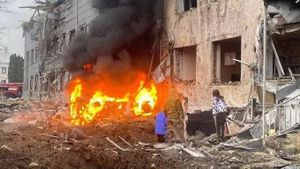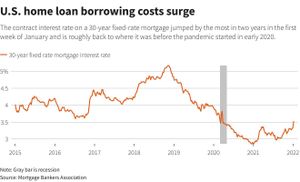On February 2, 2025, Syria's interim president Ahmed al-Sharaa embarked on his first official international visit to Saudi Arabia, marking a significant diplomatic move for the war-torn nation. Sharaa, who took office after leading the overthrow of Bashar al-Assad, arrived along with his foreign minister Assaad al-Shaibani, greeted warmly by Saudi officials as they disembarked from their private jet at King Khalid International Airport.
This visit is seen as pivotal for Syria's foreign relations as it seeks to realign its alliances, moving away from its traditional ally Iran. According to reports from state television, Sharaa is expected to meet with Saudi Crown Prince Mohammed bin Salman during his stay, though specific details of the meeting have not yet been disclosed.
The timing of this visit is especially pertinent, following Sharaa's appointment as interim president just days earlier. His ascent to power was celebrated by Saudi Arabia's King Salman and his son, signaling the kingdom's willingness to engage with the new Syrian leadership.
Sharaa's delegation is widely perceived as not just symbolic but also strategic. The Syrian authorities are pinning their hopes on Gulf countries for financial assistance to revive their economy and support reconstruction efforts following over a decade of brutal conflict. Sharaa emphasized the potential role of Saudi Arabia during a recent interview, stating, "the kingdom would certainly play an important role" and mentioned the "great opportunity for investment" it could offer.
Rabha Seif Allam, a regional expert from the Al-Ahram Center for Political and Strategic Studies, elaborates on the broader significance of this visit. She indicated, "Riyadh was playing a key role in reintegrate the new Syria... and directly benefit from the stabilization of Syria." This sentiment highlights Saudi Arabia's strategic positioning as the largest economy in the Arab world, which stands to gain from the normalization and stabilization of its neighbor.
Iran's diminishing influence within Syria remains one of the most discussed aspects of this visit. Expert Allam pointed out, "Iran is now excluded from the Syrian landscapes, weakening its regional influence," marking what many perceive as a long-awaited shift after years of Tehran's substantial backing for the Assad regime. This newfound distance from Iran can be interpreted as Damascus' effort to pivot to Gulf support, particularly as sanctions imposed by the West continue to cripple its economy.
Syria has long battled against the weight of international sanctions, many of which were intensified following the government’s violent repression of anti-government protests beginning in 2011. Sharaa’s administration is hoping this visit will help facilitate dialogue aimed at lifting these restrictions. Saudi Foreign Minister Prince Faisal bin Farhan, who visited Damascus just last month, underlined Riyadh's commitment to 'active dialogue' to alleviate the sanctions affecting Syria, signaling potential support for Sharaa's new team.
During his visit, Sharaa is not just focusing on building economic ties but also on strengthening political bonds within the region. The Syrian authorities have noted increased diplomatic visits since Sharaa’s new leadership took charge, indicating growing Arab engagement with the interim government. Just days prior to Sharaa’s Saudi visit, the Emir of Qatar, Sheikh Tamim bin Hamad Al-Thani, visited Syria, underscoring the urgency of forming an inclusive government representing all segments of Syrian society.
This growing diplomatic momentum signals hope for Syria as it grapples with the dual challenges of reconstruction and governance post-Assad. Sharaa’s leadership, characterized by attempts at overhauling Syria’s public image—including the appointment of women to key positions—demonstrates his commitment to reshaping Syria's legacy beyond the long shadow of Assad’s regime.
Despite these promising developments, challenges remain evident. Syria has not entirely evaded conflict; recent violence involves groups seeking to undermine Sharaa’s administration, including the Islamic State. The security situation, highlighted by recent bombings in cities like Manbij, poses significant threats as the new government strives for stability.
Sharaa’s visit may well set the tone for future Syrian-Gulf relations, representing not only potential investments but also digital diplomacy, as regional powers reassess their alliances following years of complex geopolitical dynamics. While the road to recovery is fraught with obstacles, Sharaa's leadership appears to bring with it new avenues of hope for Syria's future.



